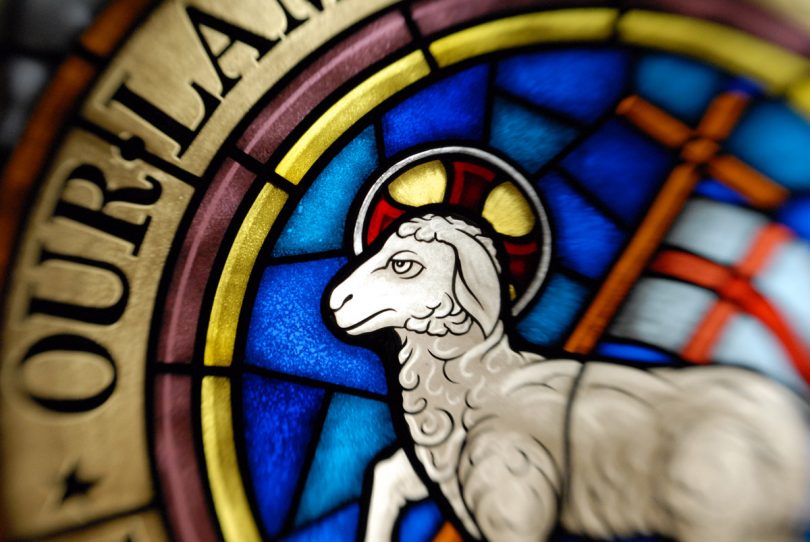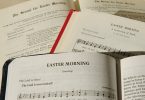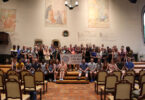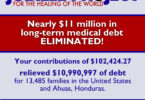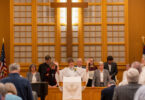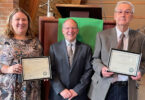What do Christians in the Moravian Church believe? What do candidates for confirmation and church membership affirm? Over the centuries, the Christian church has instructed potential members (new or those ready to confirm their faith) through the use of scripture and catechisms. These catechisms are summarized expositions of the doctrine of the church. Like many other denominations, the Moravian Church uses catechisms to instruct new members.
Following more than four years of research, discernment, writing and revising, the Interprovincial Faith & Order Commission has developed an updated Catechism for the Moravian Church in America. This updated catechism was approved by the Provincial Elders’ Conferences of the Northern and Southern Provinces this fall and is now ready for distribution and use throughout the church.
The updated catechism is intended to be a summary of the Christian faith, to be used for the instruction of confirmands and new members of the Moravian Church. This catechism is not a curriculum, but can be used within a confirmation class, Sunday school, classes for new members, and as a reference tool.
Traditionally, a catechism is written in the form of questions and answers. This catechism does not follow that format but provides the information in an expanded outline with references from scripture (New Revised Standard Version unless otherwise noted), and foundational Moravian Church documents such as Ground of the Unity (GU), Moravian Covenant for Christian Living (MCCL), Church Order of the Unitas Fratrum (COUF), and liturgies and hymns from the 1995 Moravian Book of Worship (MBW).
Revising the catechism
Work on updating the catechism began in late 2016. That fall, the Provincial Elders’ Conferences, meeting together, discussed the catechism. At the recommendation of the Faith & Order Commission, they recognized that the language and format of the catechism was out of date. They also recognized that there may be other ways than the traditional “question and answer format” of a catechism to communicate about the Moravian faith heritage.
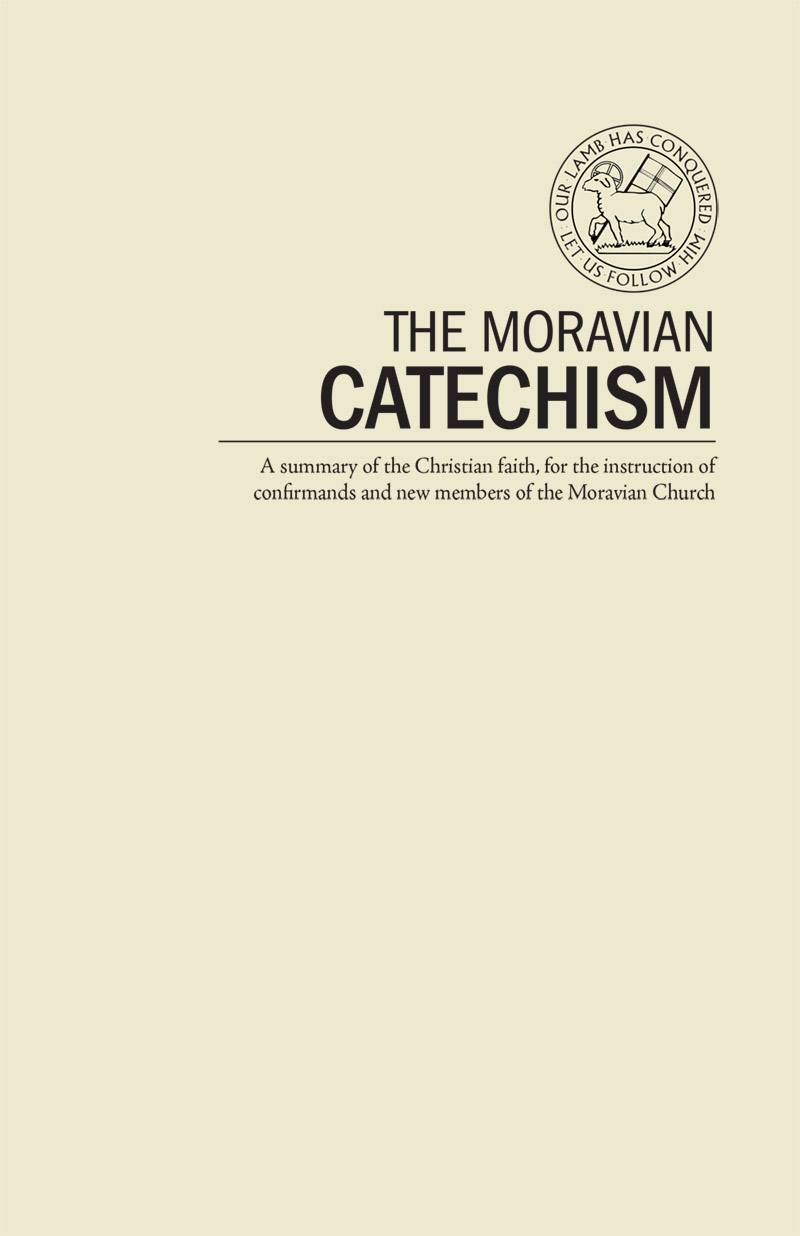 With that in mind, they authorized the Faith & Order Commission to begin work on a new, updated catechism that more faithfully expressed how Moravians understand God and our faith in God. In 2017, Faith & Order got to work on this extensive revision.
With that in mind, they authorized the Faith & Order Commission to begin work on a new, updated catechism that more faithfully expressed how Moravians understand God and our faith in God. In 2017, Faith & Order got to work on this extensive revision.
In developing the updated Catechism, Faith & Order members looked to our Moravian understanding of the matters that are truly essential for salvation, things that are helpful and valuable in the Christian faith (ministerials), and things that are incidental to the Christian life. The main essential of our faith is that God creates, God redeems, and God sustains, and we respond in faith, love and hope.
“Little did the Interprovincial Faith & Order Commission imagine, when beginning the work on the new catechism, that it would take four years of intense discussion, study and writing to complete the task,” says the Rt. Rev. Blair Couch, convener of Faith & Order. “Our meetings, some face to face, some via video or teleconference, opened with prayer and worship and we often took time to pray in the midst of the sessions. “Each of the members contributed portions of the material and we reviewed it over and over to be sure that our Moravian faith and heritage was represented,” continues Blair, “We gladly undertook the task with honesty, openness to differing opinions and some lighter moments of puns and one-liners.”
Faith & Order members during the time the new catechism was being developed included the Rev. Drs. Darryl Bell, Amy Gohdes-Luhman, Worth Green and C. Daniel Crews; the Revs. Earl Goulbourne, Staci Marrese-Wheeler, John D. Rights, Sandra Thigpen and the Rt. Revs. Blair Couch and Sam Gray; and Dr. Benjamin Wright, Betsy Bombick, Kay Windsor, Joyce Vance and Dr. Paul Peucker. “It was with great sadness that we had to finish the catechism without our dear brother Darryl Bell,” adds Blair. “He provided strong leadership in the formulation of the catechism. It is with gratitude to God that we offer the catechism to the church.”
A new publication
Working closely with Faith & Order, the Interprovincial Board of Communication (IBOC) designed a convenient new layout for the catechism. References to the Bible, the Moravian Book of Worship and church documents are used throughout. A glossary of terms, complete bibliography and a resource listing are also included in the book.
The IBOC distributed ten copies of the catechism to each Northern & Southern Province congregation in late February. Additional printed copies will be available for purchase from the IBOC and as a downloadable PDF (see below).
A history of learning
Catechisms have a long history within our church. The first Moravian catechism we know of is the Questions for Children, compiled by Luke of Prague at the beginning of the sixteenth century.
The Ancient Unity ranked the catechism next to the hymnal as a public expression of church doctrine. In 1661, Bishop Jan Amos Comenius printed a new catechism in Amsterdam hoping to preserve the faith of his persecuted church. Count Ludwig von Zinzendorf published a catechism as early as 1723. The catechism that was compiled in 1774 remained in use in various languages in different parts of the Worldwide Unity for over a century. During the nineteenth century, the Moravian Church in America published a new catechism in 1848 and again in 1893. Other catechisms were published in 1937 and 1956. The 1956 version was reprinted several times until 2003; the 2003 edition had a few textual changes. In 2017, the Provincial Elders’ Conferences of the Northern and Southern Provinces asked the Faith & Order Commission to provide a new catechism for the Moravian Church in North America.
The motto of the Moravian Church is “Our Lamb has conquered. Let us follow Him.” An important guiding principle in the Moravian Church is the saying, “In essentials, unity; in non-essentials, liberty; in all things, love.” This principle is not uniquely Moravian, but it reflects the character of our tradition. We are a worldwide Unity, and yet we recognize that we are not always united in the ways we worship, pray, interpret scripture, or administer the sacraments; in the languages we speak or the cultures in which we live.
These are all important aspects of who we are, but they are not the source or the foundation of our unity as Moravian sisters and brothers. We find our unity in the core essential beliefs that we share in common. Our unity in essential things allows us to have freedom, or liberty, in other matters that are important to people in one time or place but are not “set in stone” or required for a church or individual to be Moravian. The last four words of the principle (“in all things, love”) are very important, because even when things are not “essential,” they can still be meaningful to us and we can sometimes be passionate about them. But we remember that God’s unconditional love for us and our love for each other is greater than any of these differences. Love makes it possible for us to be united in the essentials of our faith and to move forward together in hope.
While that guiding principle is important and helpful in living out our faith, this catechism is organized according to a similar concept that originated in the early Moravian Church. It is the concept of the essentials, ministerials and incidentals. This catechism reaffirms this early Moravian concept and makes it usable again for the church today.
Copies of the new Moravian Catechism booklet were distributed to all Northern and Southern Province congregations in February. In addition, the catechism is available as a PDF download; a version that allows congregations to print the catechism as a booklet on letter-sized paper is also available.

